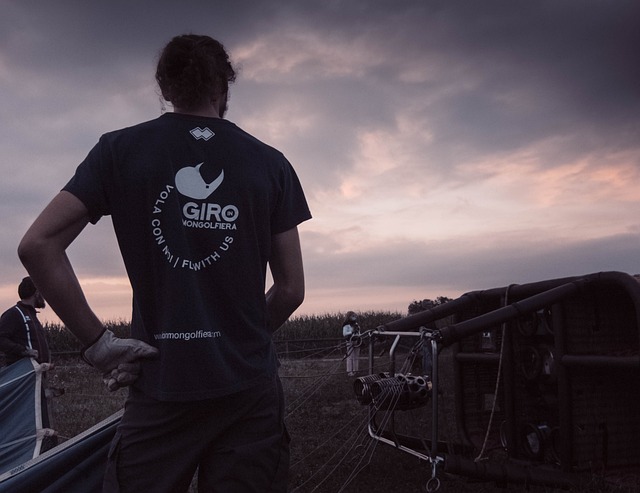The Future of Travel Agencies: Embracing Technology and Personalization
As we navigate through the complexities of the 21st century, the travel industry is undergoing significant transformations influenced by technological advancements and changing consumer behavior. Traditional travel agencies have faced challenges in adapting to a world dominated by online travel services, travel-centric apps, and a growing demand for personalized experiences. Despite these challenges, the future of travel agencies looks promising as they increasingly embrace technology and focus on delivering personalized experiences. This article explores the essential elements driving this evolution and the potential future path for travel agencies.
The Impact of Technology on Travel Agencies
The rise of digital technology has fundamentally altered how people plan, book, and experience travel. With the proliferation of smartphones and the widespread availability of the internet, consumers are now accustomed to having information at their fingertips. This has made it imperative for traditional travel agencies to evolve and adopt new technological tools to stay relevant.
Online Booking Platforms
Online booking platforms such as Expedia, Booking.com, and Airbnb have revolutionized how travelers search for accommodation, flights, and experiences. These platforms offer convenience, a wide array of choices, and often competitive pricing. Travel agencies now must recognize these shifts and seek ways to integrate their services with these online platforms or create their own to retain clientele. Some agencies are already utilizing white-label solutions that allow them to maintain their brand presence while leveraging third-party technology to facilitate bookings.
Artificial Intelligence and Chatbots
Artificial intelligence (AI) is transforming various industries, and travel is no exception. Travel agencies are increasingly using AI-driven chatbots to enhance customer service. These chatbots can answer inquiries 24/7, provide personalized recommendations based on preferences, and streamline the booking process, effectively reducing the workload for human agents. By adopting AI technologies, travel agencies can improve efficiency and elevate the customer experience.
Data Analytics
Data analytics plays a crucial role in understanding customer behavior and preferences. By harnessing the power of big data, travel agencies can gain insights into trends, emerging destinations, and customer demographics. This information allows for better-targeted marketing campaigns and personalized service offerings. Travel agencies that utilize data analytics effectively can improve their competitive edge by delivering tailored recommendations and enhancing customer engagement.
The Importance of Personalization
The modern traveler looks for unique and personalized experiences that cater to individual tastes and preferences. The cookie-cutter approach of mass tourism is rapidly losing its appeal, as travelers seek more authentic experiences that resonate with their values and lifestyle.
Understanding Customer Preferences
Travel agencies must take the time to understand their customers’ preferences. Utilizing surveys, feedback forms, and social media monitoring can provide valuable insights into what customers desire in their travel experiences. Through effective communication channels, such as newsletters and social media interactions, agencies can keep in touch with their clientele and gain a deeper understanding of their evolving preferences. This knowledge allows agencies to curate tailor-made packages and recommendations to stand out in a crowded marketplace.
Dynamic Packaging
Dynamic packaging allows travel agents to create bespoke travel experiences by bundling together flights, accommodations, and activities that are specifically catered to each individual traveler. By utilizing technology, agencies can generate instant quotes and custom itineraries that align with customer preferences. This level of personalization enhances customer satisfaction and fosters loyalty, making travelers more likely to return to the agency for future bookings.
The Rise of Experiential Travel
Experience-focused travel is on the rise, with many travelers seeking activities that provide cultural immersion and engagement with local communities. Travel agencies that embrace this trend can develop specialized packages that cater to authentic experiences, such as culinary tours, cultural excursions, and adventure travel. By collaborating with local guides and operators, agencies can provide unique opportunities that resonate with the modern traveler’s desire for deeper connections.
The Role of Sustainable Travel
As environmental concerns continue to be a pressing issue, sustainability has become a critical factor in travel decisions. Travelers are increasingly aware of their ecological footprint and are seeking out agencies that prioritize responsible travel practices.
Promoting Eco-Friendly Options
Travel agencies have a unique opportunity to educate their customers about sustainable travel options. By curating eco-friendly accommodations, promoting carbon offset programs, and highlighting local tour operators who practice responsible tourism, agencies can position themselves as leaders in sustainable travel. Offering packages that incorporate nature conservation initiatives or community-supporting activities not only aligns with consumer values but also enhances the overall travel experience.
Building Partnerships
To successfully promote sustainable travel, agencies can forge partnerships with non-profits and organizations dedicated to environmental conservation. Collaborating on projects or offering travelers opportunities to contribute to these causes can create a sense of purpose during their travels. Ultimately, travel agencies that champion sustainability will be more attractive to the growing segment of environmentally conscious consumers.
The Challenges Ahead
While the future of travel agencies is promising, several challenges remain. The competition from online travel agencies (OTAs) continues to grow, making it essential for traditional agencies to differentiate themselves. Moreover, the rapid pace of technological change requires continuous adaptation and investment. Finally, data privacy concerns must be addressed, as consumers become increasingly cautious about sharing their personal information.
Competitive Differentiation
To compete effectively against OTAs, traditional travel agencies must highlight their unique value propositions. Personalized service, local expertise, and in-depth knowledge of destinations are vital areas where agencies can shine. Building strong relationships with clients and providing a warm, human touch can be essential differentiators in an increasingly automated world.
Adopting New Technologies
Investing in technology may seem daunting, but it is crucial for the long-term success of travel agencies. While smaller agencies may have budget constraints, leveraging cloud-based solutions and partnering with tech companies can provide cost-effective options. Training staff to utilize technology efficiently will also ensure that human interactions remain valuable and relevant.
Data Privacy and Security
As data breaches become more common, travel agencies must prioritize data security measures to protect their clients’ personal information. Building trust with customers through transparent data practices will be essential in maintaining loyalty and brand reputation.
Conclusion
The future of travel agencies rests on their ability to adapt to a rapidly changing landscape shaped by technology and consumer expectations. By embracing advancements in technology, focusing on personalization, promoting sustainability, and addressing emerging challenges, travel agencies can forge a new path toward success. In this evolving industry, those that prioritize meaningful connections with travelers while leveraging technological capabilities will thrive and deliver exceptional experiences for generations to come.


